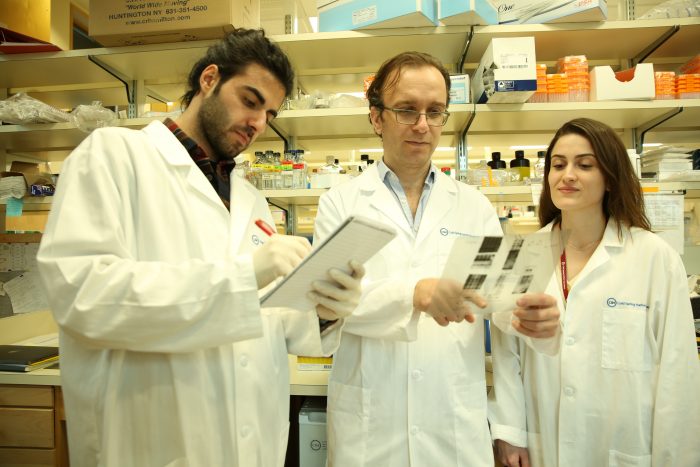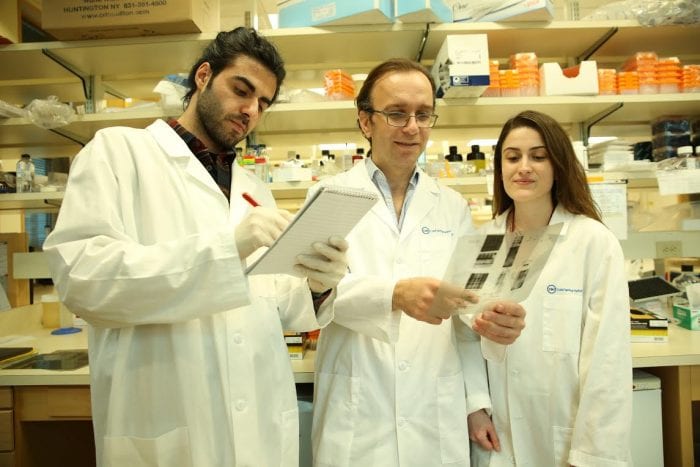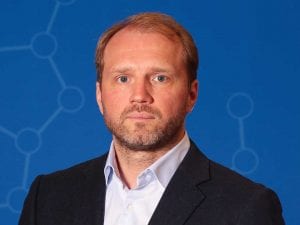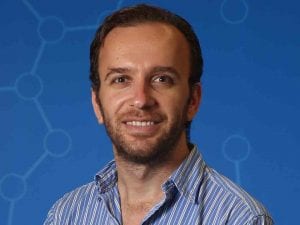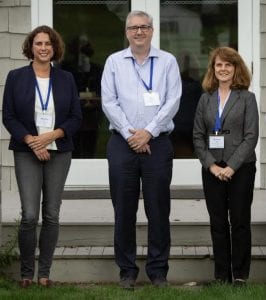By Daniel Dunaief
High fat diets present numerous health problems for humans and mice, which are often used as a model organism to understand disease.
In a recent multi-disciplinary study with mice, Cold Spring Harbor Laboratory Fellow Semir Beyaz and 32 colleagues from 15 other institutions explored how a high fat diet affects the development of intestinal tumors.
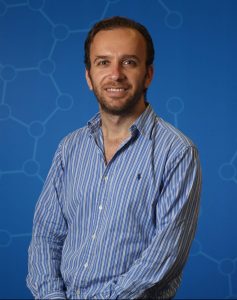
The diverse team of scientists brought together a range of expertise to discover the way a high fat diet disrupts the cross talk among the microbiome, stem cells and immune cells, triggering tumors through the reduction in the expression of an important gene, called major histocompatibility complex II, or MSC-II.
“This work nicely integrates efforts in stem cell biology, immunology, microbiology and metabolism in the context of understanding how diet is linked to cancer,” Beyaz explained in an email. With such interdisciplinary studies, “we hope to improve our understanding” of the mechanisms that link nutrition to diseases.
The paper, published in Cell Stem Cell, for which Beyaz is the first and corresponding author, shows how a high fat diet leads to immune evasion of tumor initiation stem cells due to the suppression of the immune recognition molecule MHC-II.
At the center of this study, the MHC-II gene encodes a protein that presents antigens, or foreign substances, to the immune system. When a cell is infected or cancerous, immune cells detect the unwelcome agents through their surveillance of MHC molecules, Beyaz said.
A high fat diet also results in the alteration of immune cells in the micro environment and the signals that they produce, called cytokines.
“The novel finding of our study is that the crosstalk between stem cells, microbes and immune cells is critical for eliminating tumor initiating cells and this cross talk is dampened in response to a high fat diet, demonstrating a mechanistic basis for how high fat diets may promote cancer,” said Beyaz.
A current hypothesis, which has some supporting evidence in Beyaz’s study, suggests that diet-related factors might facilitate early onset colorectal cancer.
To be sure, researchers need to conduct more work to understand the environmental factors that facilitate early onset colorectal cancer, Beyaz explained. “The knowledge of what causes early onset colorectal cancer in young adults is very limited,” he added.
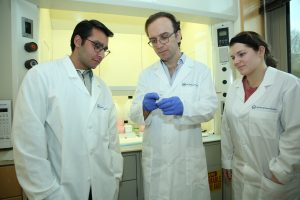
Beyaz believes diet is one of the most important environmental factors that contribute to cancer risk. Diet could affect sleep, stress and other factors.
“There are so many things we don’t know about how diet affects our body,” he said. “That’s why I’m very excited to work on understanding these mechanisms.”
Beyaz said the mice in his study consumed a lard-based pro-obesity diet that was high in carbohydrates.
A diet that is lower in carbohydrates and higher in fat is more similar to a ketogenic diet, which could have other outcomes. His ongoing studies are trying to tease apart some of these differences.
To counteract the effect of diet on the development of cancer, Beyaz plans to activate the altered pathways by using either microbes or small molecule drugs.
“We believe if we promote immune surveillance by activating these pathways, we can elicit preventative and therapeutic strategies against cancer,” he explained.
Additionally, in his ongoing research, Beyaz plans to address numerous other questions that link diet to disease.
An increasing number of studies are exploring how diet and microbes affect cancer, which he described as a “hot topic.”
Beyaz believes a high fat diet might turn on or off some genetic sequences, enabling the latent development of cancer.
His unique niche involves searching for a connection between diet and perturbations that affect cross talk among cells. While this field has numerous challenges, Beyaz suggested he was “drawn” to that difficulty.
Beyaz’s expertise is in stem cell biology and immunology. He appreciates and enjoys the opportunity to interact with researchers from other disciplines that could lead to actionable progress.
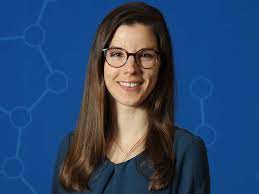
While science has to be reductionistic and focused on one molecule or cells at times, new conceptual and technical advances have made it possible for the lines between disciplines in biology to disappear slowly, he explained.
Beyaz and his colleagues are looking forward to taking some of the next steps in this effort.
For starters, he is excited to expand this study, to understand whether there is a threshold for a high fat diet that favors the growth of tumors. Diets that fall below a potential threshold might not promote the growth or development of tumors.
Such a threshold could become clinically relevant, providing health care workers with a pre-cancerous marker that could signal the need for lifestyle changes and medical vigilance that could stave off or avoid the formation of disease-bearing and life-threatening tumors.
“We have some ongoing work to delineate such thresholds and proxies,” Beyaz said. Additionally, they would like to see whether this effect is reversible, to determine whether an altered microbiome might promote the expression of MHC-II, which could derail the tumor forming process.
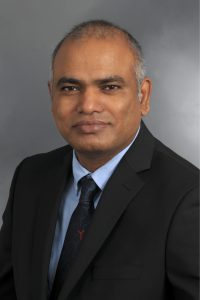
Beyaz’s collaborators on this work include Hannah Meyer, who is a fellow at Cold Spring Harbor Laboratory Fellow, and Pawan Kumar, who is an Assistant Professor in the Department of Microbiology and Immunology at the Renaissance School of Medicine at Stony Brook University.
In his life outside the lab, Beyaz, who enjoys fishing, gardening, and hiking, avoids excessive sugar and fat consumption. He doesn’t eat fast food or consume sugary drinks.
Originally from the town of Samandag which is near the Mediterranean Sea in the southeastern part of Turkey, Beyaz enjoys cooking and is fond of making lamb, beef, chicken and eggplant kebabs.
When he was growing up, Beyaz said science was a passion for him.
“It is not a job or a career,” he explained. “It is the way I find meaning in life, by learning how to ask and (sometimes) answer questions at the edge of cumulative human knowledge.”

